
Other Books by Dick Couch
Fiction
SEAL Team One
Pressure Point
Silent Descent
Rising Wind
The Mercenary Option
Covert Action
Nonfiction
The Warrior Elite
The U.S. Armed Forces NBC Survival Manual
The Finishing School
Down Range
Chosen Soldier
This book is dedicated to Marc Lee,
Mike Monsoor, and Clark Schwedler,
three Navy SEAL warriors who perished in the
fight to wrest al-Anbar province from the
al-Qaeda-backed insurgents and
return it to the Anbari people.
The latest edition of this work has been brought to publication with the generous assistance of Marguerite and Gerry Lenfest.
Naval Institute Press
291 Wood Road
Annapolis, MD 21402
2008 by H. R. Couch
All rights reserved. No part of this book may be reproduced or utilized in any form or by any means, electronic or mechanical, including photocopying and recording, or by any information storage and retrieval system, without permission in writing from the publisher.
SEAL Team One is an original publication of Avon Books. This work is a novel. Any similarity to actual persons or events is purely coincidental.
First Naval Institute Press paperback edition published in 2008
ISBN 978-1-61251-418-5 (eBook)
The Library of Congress has cataloged the paperback edition as follows:
Couch, Dick, 1943
SEAL Team One / Dick Couch.1st Naval Institute Press pbk. ed.
p. cm.
1. United States. Navy. SEALsFiction. 2. Vietnam War, 19611975Fiction. 3. Vietnam War, 19611975Commando operationsFiction. I. Title.
PS3553.O769S33 2008
813.54dc22
2007045191
 Print editions meet the requirements of ANSI/NISO z39.48-1992 (Permanence of Paper).
Print editions meet the requirements of ANSI/NISO z39.48-1992 (Permanence of Paper).
9 8 7 6 5 4 3 2
Contents
Americas time in Iraq has been hard. Our efforts to secure our nations interests and usher in a brighter future for a fellow people have not always met with the success we anticipated or would have liked. In the Navy, sailors speak of such times as a stern chase, and a stern chase is a long one. Yet as our fighting men and women know so well, America has faced such trials before. What distinguishes us as Americans is not that we are subject to such challenges, but rather how we respond to themwith persistence, with clarity of purpose, and with the determination to succeed in the service of our nation.
Those in the media and the body politic have often been quick to point out the deficiencies of our efforts in Iraq. I, too, have criticized the conduct of the war. Yet the purpose of that criticism has always been to identify new pathways to security and success. In spite of our manifold sacrifices, we must never let our frustration turn into negativism and blind us to the potential for success. Our military surely has not. In combination with their Iraqi partners, our soldiers, sailors, airmen and marines have made tremendous strides in a cause some had long deemed futile.
One of the greatest of these began in the spring of 2006 in western Iraq. The Battle of Ramadithe fight for a key stronghold in al-Anbar province, then Iraqs most dangerous areacontinued into the spring of 2007. In this volume, Dick Couch has given us a superb accounting of the Navy SEALs who took part in the battle and who, along with their Army and Marine Corps comrades, returned the city of Ramadi and the whole of Anbar province back to the Iraqi people.
Before the Battle of Ramadi, al-Anbar province accounted for nearly half of U.S. military fatalities and half the deadly roadside bombs known as IEDs (or improvised explosive devices) that indiscriminately killed Americans and Iraqis alike. In Ramadi and across al-Anbar, insurgents routinely assaulted U.S. and Iraqi patrols. Gunfire and explosions were commonplace. By August of 2007, all that had changed. Ramadis streets were patrolled not by al-Qaeda, but by Iraqi policemenSunni tribesmen who had helped to win back their neighborhoods from the insurgents. Days now go by without violent incident. Al-Qaeda and their surrogates occasionally slip into the city to commit acts of terrorism, but Iraqi police are in place to deal with them. Reconstruction is under way, schools have reopened, and economic progress is taking place.
There remains a long road ahead in Iraq; there will be continuing challenges and our work is not done. And yet it is beyond doubt that the gallant soldiers, Marines, and SEALs who have fought there deserve to look back on their efforts with a great sense of professional pride and accomplishment. Increasingly, the American public has come to understand that something important began to change in Iraq in late 2006 and throughout 2007. Thanks to the careful research and insightful analysis of Dick Couch, we now have a much deeper understanding of a pivotal battle that began the process of expelling al-Qaeda from its strongholds.
As Mr. Couch explains, our military expelled al-Qaeda from Ramadi not through force of arms alone. Recognizing that an insurgency is a war for the people, our fighting men and women won the people. The people of Ramadi and al-Anbar, when given a clear choice and a sense of personal security, sided with American and Iraqi security forces against al-Qaeda. The Anbari people won, Iraq won, America won, and al-Qaeda lost.
In The Sheriff of Ramadi, Dick Couch brings to life the brave and talented individuals who helped orchestrate this victory. These include Colonel Sean MacFarland, who commanded American and Iraqi forces during the battle and whose outreach to the tribal sheikhs of al-Anbar helped bring these influential leaders over to our side. Sheikh Sattar abu Risha led the Anbari tribes into an alliance with the Americans, and in September 2007 paid for his courage with his life. SEAL Petty Officer Mike Monsoor died in the Battle of Ramadi, selflessly giving his life to save the lives of his brother SEALs in an act of heroism that merited the Medal of Honor. The tale of these and many other extraordinary individuals make up the gripping narrative that is The Sheriff of Ramadi. In telling their story, Dick Couch has not only paid tribute to their bravery and sacrifice, but also provided all readers with unique insights into a pivotal battle in the war in Iraq.
Senator John McCain
A Message from the Commander
In 2006 the collapse of Ramadi seemed imminent. Into this chaos there was thrust a small element of U.S. special operations forces, mostly Navy SEALs. This SEAL task unit was given an ambiguous mission, tenuous support, and an uncertain relationship with the U.S. soldiers and Marines who were struggling mightily for control of the streets. Given operational latitude, the SEALs quickly adapted to the environment, found their unique place on the team, and became key to the ultimate liberation and stabilization of Ramadi.
Next page

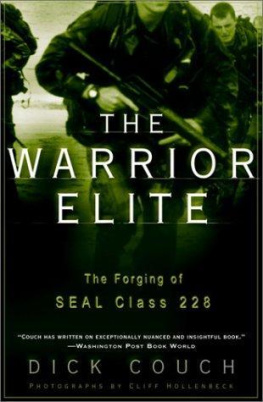
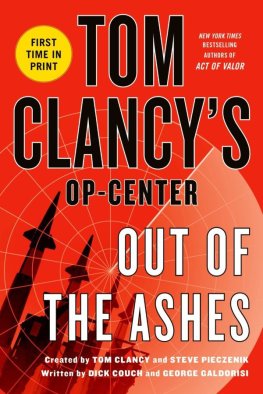
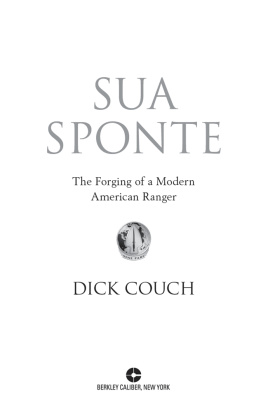
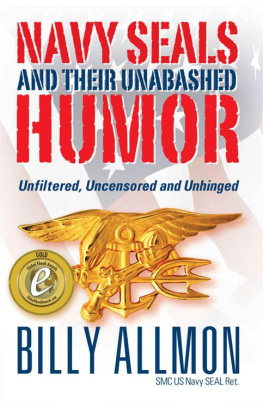
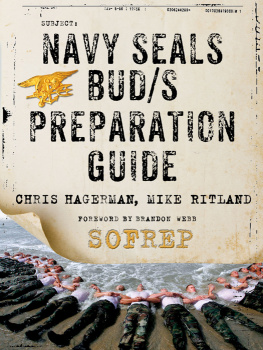
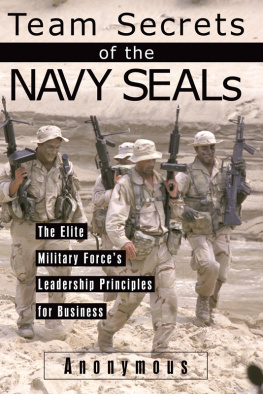


 Print editions meet the requirements of ANSI/NISO z39.48-1992 (Permanence of Paper).
Print editions meet the requirements of ANSI/NISO z39.48-1992 (Permanence of Paper).